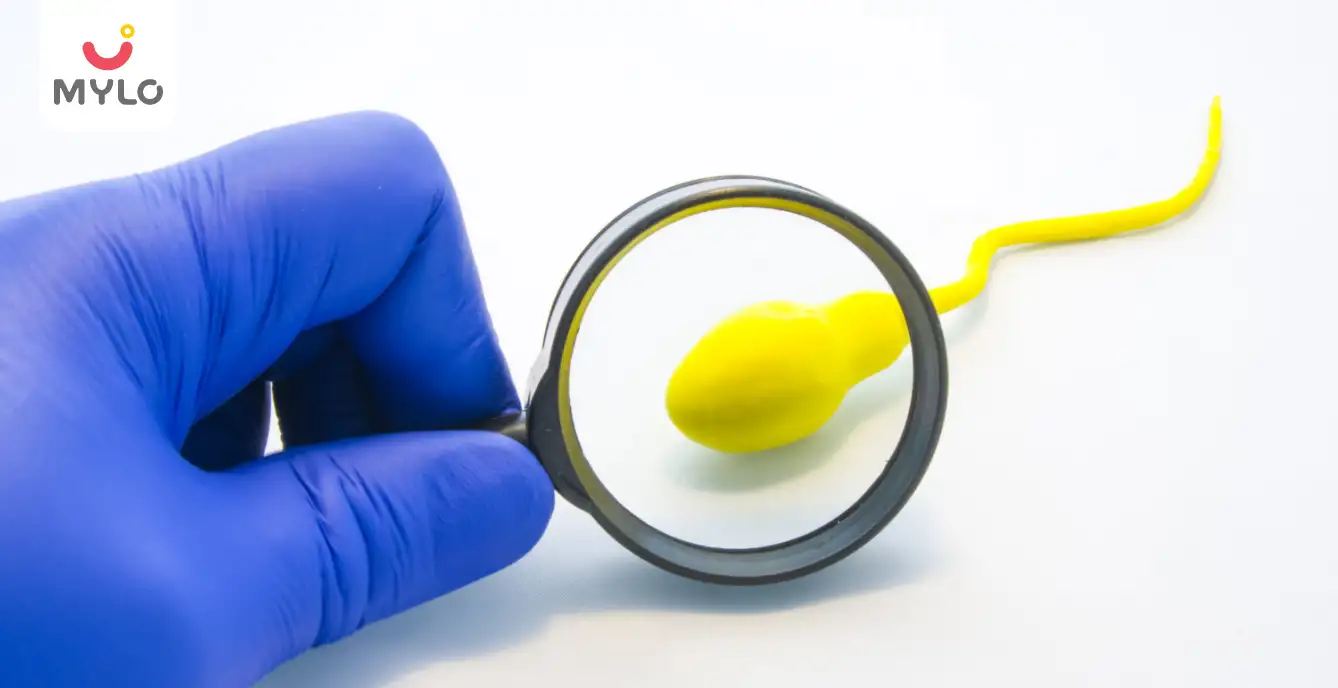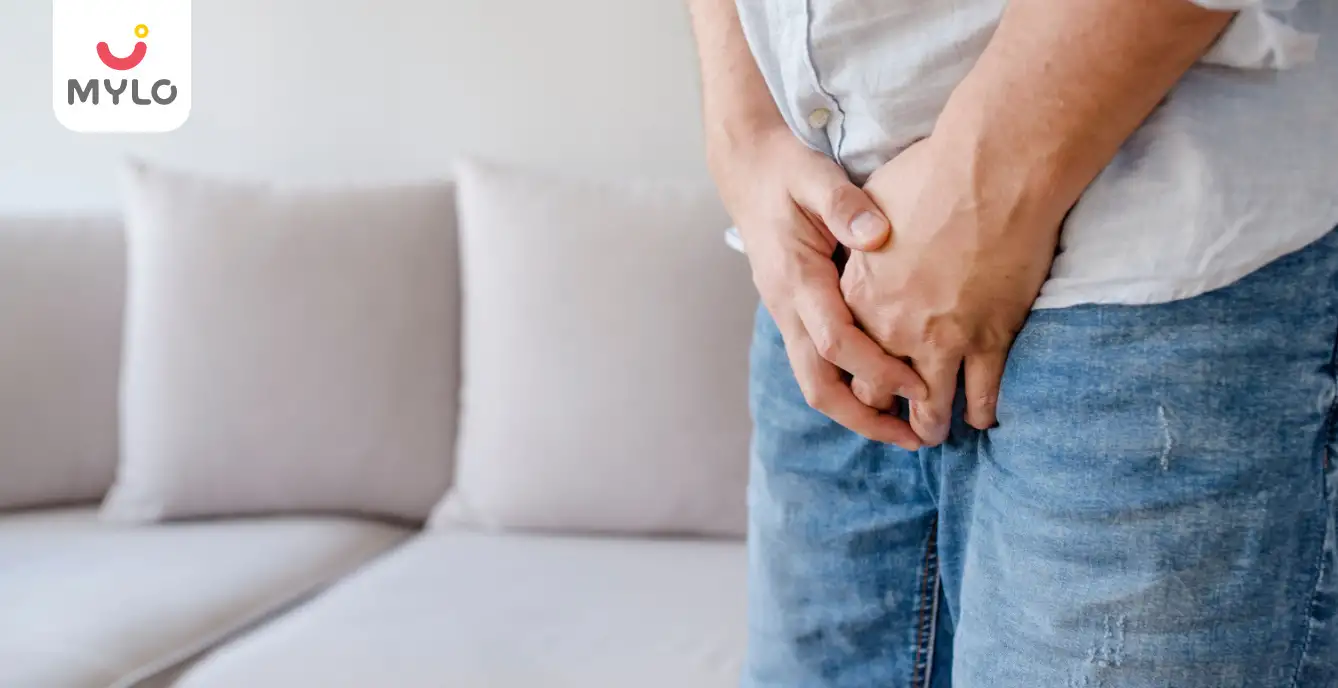Home

How to Manage and Alleviate Round Ligament Pain During Pregnancy?
In this Article

How to Manage and Alleviate Round Ligament Pain During Pregnancy?
Updated on 4 July 2023
Pregnancy is a beautiful journey, but it can also be challenging, especially when it comes to managing the pain that comes with it. Round ligament pain is one of the most common discomforts that women experience during pregnancy. Usually accompanied by the onset of second trimester or week 14 of pregnancy, round ligament pain is caused by the stretching of the ligaments that support the uterus as the baby grows. This pain can be sharp and sudden, making it difficult to move or even walk.
However, there are ways to manage and alleviate round ligament pain, and that's what we'll be discussing in this article. Whether you're a first-time mom or have been through pregnancy before, these tips will help you stay comfortable and enjoy your pregnancy journey to the fullest. So, let's dive in and learn how to manage and alleviate round ligament pain during pregnancy!
What causes round ligament pain during pregnancy?
The round ligament is a band of tissue that connects the uterus to the groin area. During pregnancy, as the uterus expands to accommodate the growing fetus, the round ligament stretches and becomes thinner and longer. This stretching can cause the ligament to become irritated or inflamed, which leads to the sharp, stabbing pain in groin area or the lower abdomen. Round ligament pain is more common in the second trimester of pregnancy, but it can occur at any time during pregnancy.
Symptoms of round ligament pain
The symptoms of round ligament pain include a sharp, stabbing pain on one or both sides of the lower abdomen or groin area. The pain usually occurs when you change positions, such as getting up from a sitting or lying down position, coughing, sneezing, or laughing. The pain can also be triggered by physical activities such as walking, climbing stairs, or lifting objects. Unlike contractions, round ligament pain does not come and go in a regular pattern.
How to alleviate round ligament pain - stretches and exercises
There are various stretches and exercises that can help alleviate round ligament pain during pregnancy. These include:
1. Pelvic tilt
Pelvic tilt is a simple exercise that can help relieve round ligament pain. To do this exercise, lie down on your back with your knees bent and your feet flat on the floor. Push your lower back into the floor and hold for 10 seconds. Relax and repeat 10 times.
2. Cat and cow stretch
The cat and cow stretch is a yoga pose that can help stretch the round ligament and alleviate pain. Start on your hands and knees with your wrists directly under your shoulders and your knees directly under your hips. Inhale and arch your back, lifting your head and tailbone towards the ceiling. Exhale and round your spine, tucking your chin to your chest and bringing your tailbone towards your knees. Repeat 10 times.
3. Prenatal yoga
Prenatal yoga is a gentle form of exercise that can help stretch and strengthen the muscles that support the uterus and the round ligament. It can also help improve circulation and reduce stress, which can help alleviate round ligament pain. Consult with your doctor before starting any exercise program.
Other tips for managing round ligament pain
Round ligament pain can be uncomfortable and interfere with your daily activities. Aside from stretches and exercises, there are some tips for coping with round ligament pain in everyday life:
1. Rest and relaxation
Resting and taking breaks throughout the day can help reduce the pressure on the round ligament and alleviate pain. Take frequent breaks when sitting or standing for long periods. Lie down on your side with a pillow between your knees to support your hips.
2. Warm compress
Applying a warm compress to the affected area can help relax the muscles and alleviate pain. You can use a warm towel, heating pad, or hot water bottle. Make sure the temperature is not too hot to avoid burning your skin.
3. Proper posture
Maintaining good posture can help reduce the pressure on the round ligament and alleviate pain. When sitting, use a chair with good back support and keep your feet flat on the floor. When standing, keep your weight evenly distributed on both feet and avoid standing for long periods.
4. Ask for help
We get it, you're self-reliant and don't like bothering anyone. But it's time to put you and your baby first and ask for help whenever needed. Ask for help with heavy lifting or other physical activities that can put strain on the round ligament.
5. Use a maternity support belt
If round ligament pain has been bothering you for a few weeks and is soon to be accompanied by back pain, then it's time to invest in a pregnancy support belt. A maternity support belt can help support the weight of the uterus and alleviate pressure on the round ligament.
Preventing round ligament pain during pregnancy
While it may not be possible to completely prevent round ligament pain during pregnancy, there are some things you can do to minimize your risk. These include:
1. Avoid sudden movements
Avoid sudden movements that can put strain on the round ligament, such as twisting, turning, or bending quickly.
2. Wear comfortable clothing
Wear loose, comfortable maternity wear that does not put pressure on the abdomen or groin area.
3. Maintain a healthy weight
Maintain a healthy weight throughout your pregnancy to avoid putting excess pressure on the round ligament.
When to seek medical help for round ligament pain
In most cases, round ligament pain is normal and can be managed with the tips and exercises discussed above. However, you should consult your doctor immediately if
-
The pain persists for more than a few minutes.
-
The pain is also accompanied by bleeding, cramping, fever, chills, nausea, vomiting, or changes in vaginal discharge.
-
The pain persists even after resting.
-
The pain is very severe.
-
You experience more than four contractions per hour. This could be an indication of labor.
Final thoughts
Round ligament pain is a common discomfort that many pregnant women experience. It is caused by the stretching of the round ligament as the uterus expands to accommodate the growing fetus. While it can be uncomfortable, round ligament pain is usually normal and can be managed with stretches, exercises, and other tips discussed above. If you experience severe or persistent pain or other unusual symptoms, you should seek medical help immediately. With proper care and management, you can alleviate round ligament pain and enjoy a comfortable pregnancy.



Written by
Ravish Goyal
Official account of Mylo Editor
Read MoreGet baby's diet chart, and growth tips

Related Articles
RECENTLY PUBLISHED ARTICLES
our most recent articles

Scans & Tests
FSH LH Prolactin Test: What This Group of Tests Can Tell You About Your Fertility

Medications
Why Berbitol is the Missing Piece in Your Supplement Stack

Leisure
Top 10 Action Movies to Watch on Netflix in 2023

In Vitro Fertilization (IVF)
Foods to Avoid After Embryo Transfer & Other Precautions to Boost Your Chances

Reproductive health
Semen Analysis: A Comprehensive Look at Male Reproductive Health

Sex Life
Understanding Premature Ejaculation: Causes, Symptoms, and Treatment Options
- Gokshura: The Ancient Ayurvedic Remedy for Optimal Sexual Health and Wellness
- Retrograde Ejaculation: Unraveling the Mystery Behind This Uncommon Sexual Dysfunction
- Fertisure F: The Key to Unlocking Your Fertility Potential & Chances of Conception
- Here's everything you need to know if you want to give potty training to your infant or try Elimination Communication.
- Top 4 Kinds of Infertility Treatments to Cure Male Infertility
- Sleeping positions during pregnancy
- Burning Sensation After Sex: What Could It Mean
- Hormonal Imbalance in Men: What You Need to Know About Its Hidden Effects
- Kapikacchu: The Secret Ingredient for Boosting Fertility and Libido
- Safed Musli: The Secret Ingredient to Boost Your Immune System and Lifestyle
- What Causes Blurred Vision During Pregnancy & How to Deal With It?
- Suffering from Insomnia during your Pregnancy: Here are the Symptoms and Solutions
- Original Shilajit: The Key to Unlocking Your Health and Wellness Goals
- Pregnancy Induced Hypertension : Symptoms, Causes & Treatment


AWARDS AND RECOGNITION

Mylo wins Forbes D2C Disruptor award

Mylo wins The Economic Times Promising Brands 2022
AS SEEN IN

- Mylo Care: Effective and science-backed personal care and wellness solutions for a joyful you.
- Mylo Baby: Science-backed, gentle and effective personal care & hygiene range for your little one.
- Mylo Community: Trusted and empathetic community of 10mn+ parents and experts.
Product Categories
baby carrier | baby soap | baby wipes | stretch marks cream | baby cream | baby shampoo | baby massage oil | baby hair oil | stretch marks oil | baby body wash | baby powder | baby lotion | diaper rash cream | newborn diapers | teether | baby kajal | baby diapers | cloth diapers |




